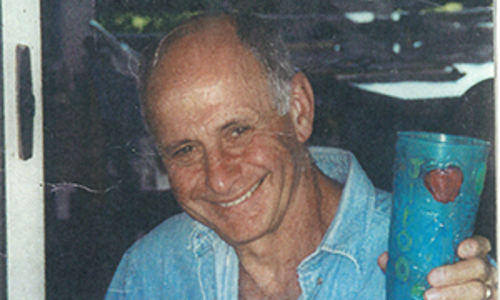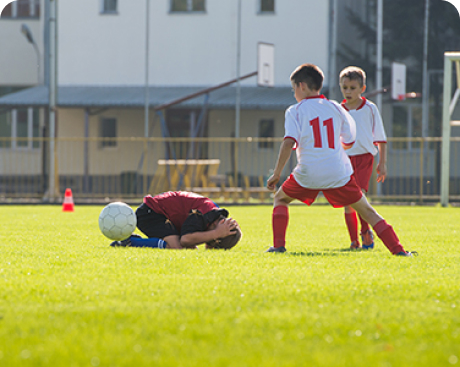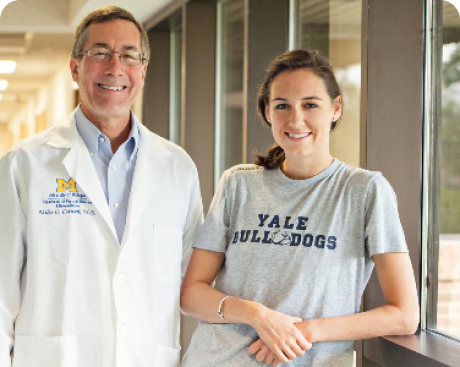James Rahal played high school football in Belmont, MA. At the beginning of his senior year he sustained a concussion which left him in a coma for two days. Although that ended his football playing days, he went on to play baseball for Harvard during his undergraduate years, and was a lifelong recreational tennis player. After college, he served as chief of Infectious Diseases at both NYU/VA Medical Center in Manhattan and New York Hospital/Queens from the early 1970s until just a few months before he died. During his later years, he began to decline; it began with a seizure in 2008 and then subtle, but increasingly apparent, changes in mood and affect, as well as difficulty with mobility. His family later donated his brain to the UNITE Brain Bank for research.

Jim played high school football in Belmont, MA. At the beginning of his senior year he sustained a concussion which left him in a coma for two days. Although that ended his football-playing days, he went on to play baseball for Harvard during his undergraduate years, and was a lifelong recreational tennis player.
Jim’s professional work was in academic medicine. He served as chief of Infectious Diseases at both NYU/VA Medical Center in Manhattan and New York Hospital/Queens from the early 1970s until just a few months before he died. He developed an international reputation for his original clinical research in his field.
In 2002 he underwent neurosurgery for a brain tumor, which was diagnosed as Rosai-Dorfman Disease, an extremely rare condition. Although he returned to work and functioned well for several years, he began to decline; it began with a seizure in 2008 and then subtle, but increasingly apparent, changes in mood and affect, as well as difficulty with mobility.
Although his death was attributed to complications from Rosai-Dorfman Disease, his wife Barbara contacted Chris Nowinski and Dr. Robert Cantu at the Concussion Legacy Foundation, asking them to consider his case because of his high school football concussion history, as well as two or three head injuries he had sustained in auto accidents as an adult.

